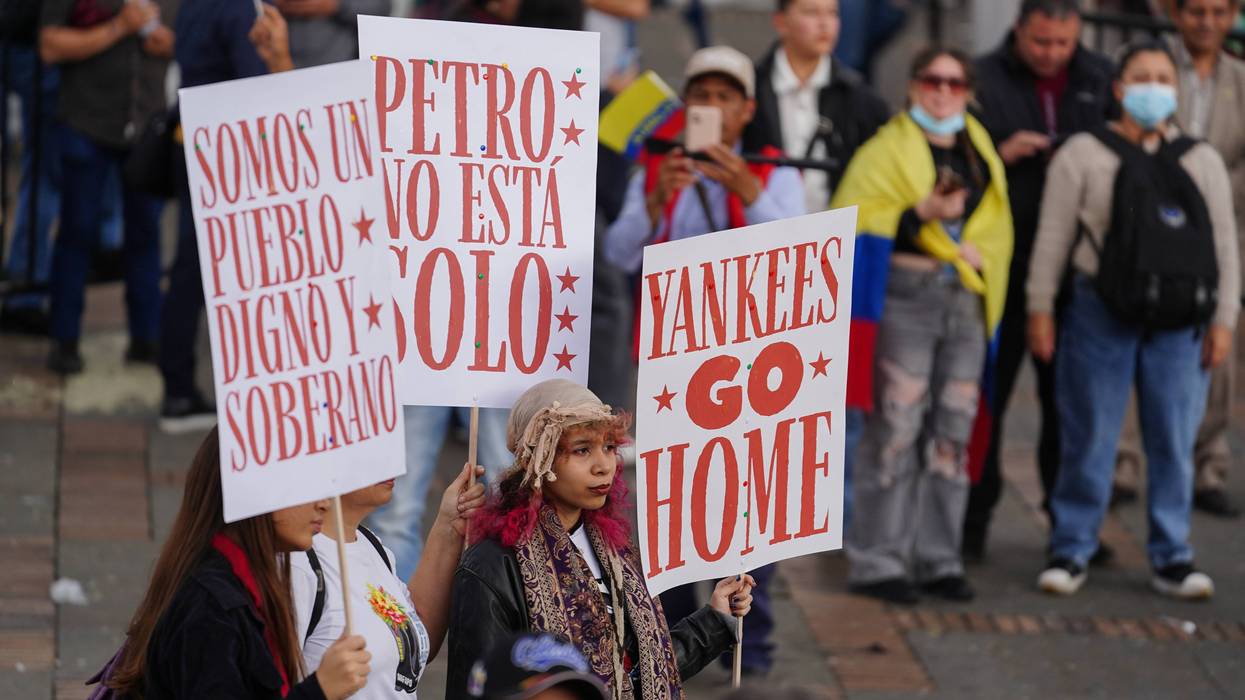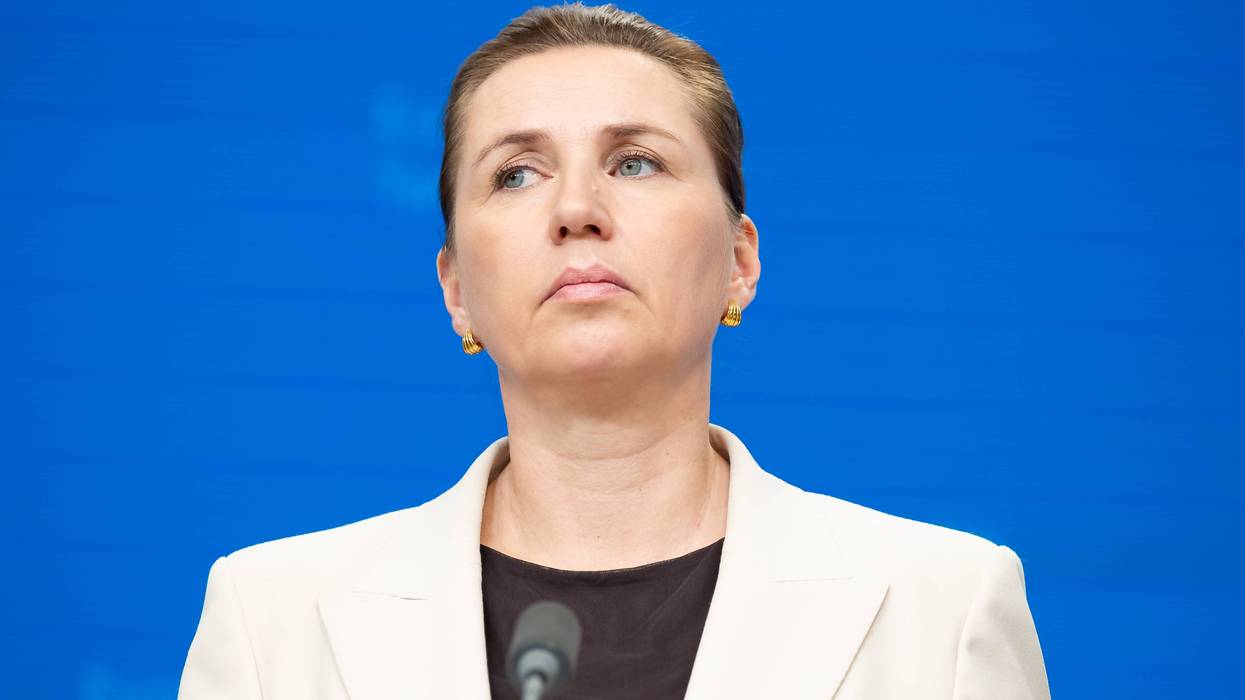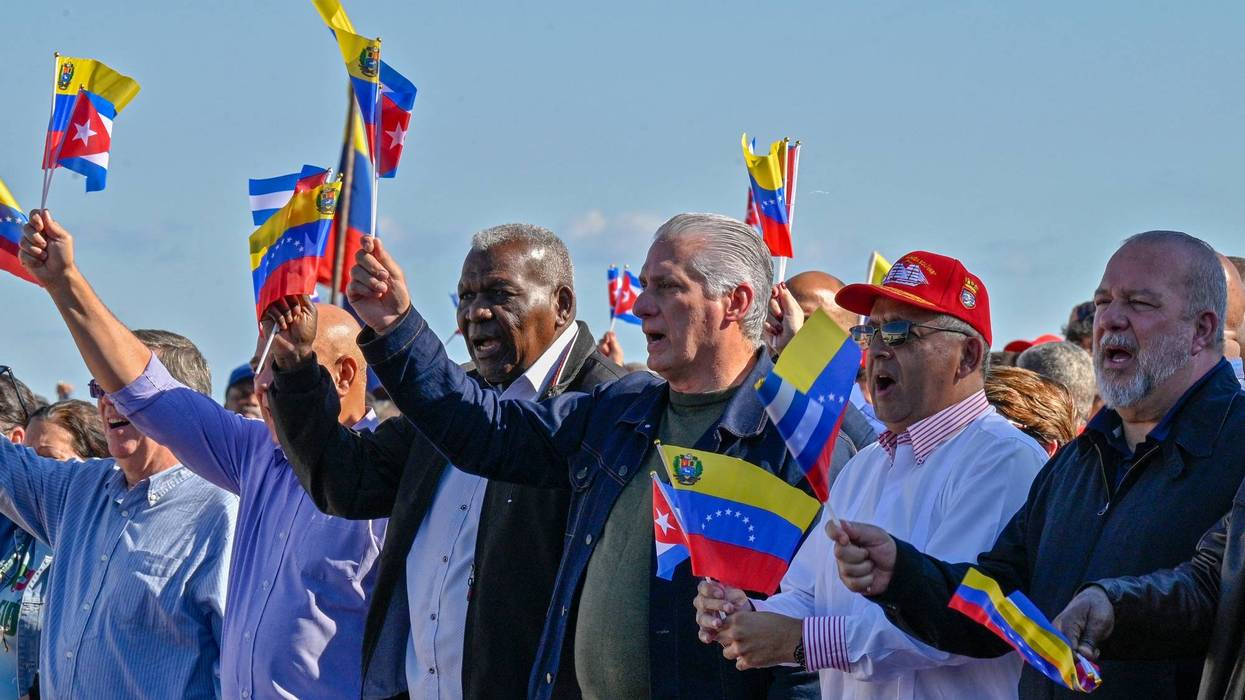With the Trump administration signaling that its kidnapping of Venezuelan President Nicolás Maduro could be followed by more military actions in countries President Donald Trump has threatened in the past, the prime minister of Denmark on Monday said his continued threats, however outlandish, were being taken seriously by her government.
"Unfortunately, I think the American president should be taken seriously when he says he wants Greenland," Prime Minister Mette Frederiksen told Danish public broadcaster DR.
Frederiksen emphasized that Denmark and Greenland, which is autonomous but part of the Danish kingdom, are also resolute in their repeatedly stated opposition to Trump's goal of taking over the mineral-rich Arctic island nation, and their commitment to fighting back against any military action by the US.
"I have made it very clear where the kingdom of Denmark stands, and Greenland has repeatedly said that it does not want to be part of the United States," she added. "If the United States attacks another [North Atlantic Treaty Organization] country, everything stops."
On Sunday, Trump repeated that "we need Greenland from the standpoint of national security," drawing rebukes both from Frederiksen and the prime minister of Greenland, Jens-Frederik Nielsen, who called Trump's rhetoric about the country "completely unacceptable."
"Our country is not an object in the rhetoric of a superpower," said Nielsen in a social media post. "We are a people. A country. A democracy. That must be respected. Especially by close and loyal friends."
"Threats, pressure, and talk of annexation have no place between friends," he added. "This is not how you talk to a people who have repeatedly demonstrated responsibility, stability, and loyalty. Enough is enough. No more pressure. No more insinuations. No more fantasies about annexation."
Frederiksen and Nielsen's comments followed remarks from Trump and Secretary of State Marco Rubio about potential US interventions in a number of countries that the administration has previously threatened.
"Enough is enough. No more pressure. No more insinuations. No more fantasies about annexation."
Rubio told NBC's "Meet the Press" on Sunday that Cuba is "in a lot of trouble."
While declining to detail the White House's plans for the country, where the Cuban-American secretary of state has long advocated for regime change, Rubio said Cuba had been "propping up" Maduro before Saturday's military operation in which the US bombed Venezuela and arrested the president and his wife.
“If I lived in Havana and I was in the government, I’d be concerned," said Rubio.
The secretary of state echoed comments from Trump, who said soon after Maduro's capture that "Cuba is going to be something we’ll end up talking about."
"It’s very similar [to Venezuela] in the sense that we want to help the people in Cuba, but we want to also help the people that were forced out of Cuba and are living in this country," said Trump.
The president also expanded his threats in Latin America to Mexico and Colombia, whose leaders he accused of allowing the drug trade to flourish in their countries.
Trump accused Colombian President Gustavo Petro of having "cocaine mills."
"He’s making cocaine. They’re sending it into the United States. So he does have to watch his ass," Trump said, adding that a US military operation against Colombia "sounds good to me."
The Trump administration's claims that it aims to protect the US from drug trafficking have been central to its rapid escalation in Venezuela in recent months. While accusing Maduro, Petro, and Mexican President Claudia Sheinbaum of allowing drugs to flow into the US, the president pardoned former Honduran President Juan Orlando Hernández, who was convicted to ensuring more than 400 tons of cocaine were sent to the US.
Petro responded Monday with a warning to Trump, should he carry out an operation like the kidnapping of Maduro.
“If you detain a president whom much of my people want and respect, you will unleash the people’s jaguar," said Petro.
In Denmark, the government was reportedly treating Trump's latest comments about the strategically located Greenland with urgency, with one official at the political risk consulting firm Eurasia Group writing in a LinkedIn post that "the Danish government is in full crisis mode."
"A possible US intervention in Greenland is now the biggest source of risk to the transatlantic alliance and intra-NATO and intra-EU cohesion, arguably far greater than those presented by Russia’s invasion of Ukraine," said Mujtaba Rahman, managing director for Europe at the Eurasia Group.
Other European leaders signaled their intention to come to the defense of Greenland and Denmark should Trump take military action against the Arctic island.
European Commission spokesperson Anitta Hipper said regarding Trump's latest comments that the European Union "will continue to uphold the principles of national sovereignty, territorial integrity, and the inviolability of borders and the [United Nations] Charter.”
British Prime Minister Keir Starmer also expressed support for Frederiksen's demand that Trump "stop the threats against a historically close ally and against another country and another people who have said very clearly that they are not for sale."
"I stand with her, and she’s right about the future of Greenland," Starmer told the Guardian on Monday. "Greenland and the kingdom of Denmark are to decide the future of Greenland, and only Greenland and the kingdom of Denmark."
But European leaders have been far more muted in their comments about the US military intervention that is already underway in a sovereign nation: Venezuela.
A spokesperson for 10 Downing Street suggested the UK would abstain in the UN Security Council vote on a resolution condemning the Venezuela attack, and declined to denounce Trump's threats against Cuba and Colombia.
German Chancellor Friedrich Merz said that "the legal assessment of the US intervention is complex," while EU foreign affairs chief Kaja Kallas called for "restraint" but noted that "the EU has repeatedly stated that Maduro lacks legitimacy."
The EU Green Party called on leaders in the bloc to "defend international law consistently."
French entrepreneur Arnaud Bertrand added that "when EU leaders legitimize what Trump did in Venezuela, they're preemptively justifying him taking over Greenland, as he keeps saying he will."




